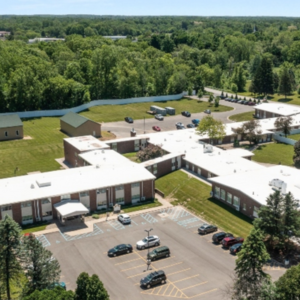5 Ways to Beat the End of Summer Blues

Michiganders feel a hint of melancholy during the Labor Day holiday each year. This is when we dry dock the boats, close up cabins, and buy back-to-school supplies. It is also the last big blowout of the summer, and picnics, waterskiing, tubing, hiking, and camping excursions abound. But for those in recovery, looking ahead to autumn and winter can also bring on the “end of summer blues.” It’s important to remember the milestones you have achieved and to take a moment to reflect on how far you have come.
“Seasonal Affective Disorder (SAD) is a type of depression that comes and goes with the seasons, typically starting in the late fall and early winter and going away during the spring and summer. Depressive episodes linked to the summer can occur but are much less common than winter episodes of SAD.” National Institute of Mental Health – Seasonal Affective Disorder
5 Ways to Beat the End of Summer Blues
Don’t dismiss the down feeling as just the “end of summer blues” or something you must manage independently. We know that 20 percent of those with anxiety or mood disorders, such as depression, also experience substance use disorders, and vice versa. Find ways to keep your mood steady throughout the year. Further, seek professional help if mood changes are serious and affect your ability to manage daily activities.
1. Forest Bathing
Sometimes, this is called “flooding the senses”. And like the old hippie song says, “We’ve got to get ourselves back to the garden.” When we get outside, away from the city’s noise, we can soak in nature’s sounds, sights, touch, and smells. (Be careful about the “taste” – toadstools and holly berries – maybe bring a bag of nuts?). Being present in the moment and fully aware of your changing surroundings will bring small miracles your way.
Awe Walks for Mental Health
2. Everything Old is New Again
Summer weather is not over yet. Change it up! Experience your surroundings with someone new or find a different place to explore. Increase your pace as the weather cools, or try a new move – climb a tree or a dune. These fresh pursuits will increase creativity, decrease blood pressure, clarify problem-solving, generate vivid dreams (and deeper sleep), and increase appetite. Anticipation is good for your mental health – start thinking about how gorgeous Michigan is in the fall!
Michigan Autumn is Good for Your Mental Health!
3. Looking Forward
Start a walking group, book club, or family dinner. When you have a positive energizer to look forward to, it redirects anxiety. Also, a person can reset at any time throughout the day. It’s never too late to start over; it’s never too late to have a good day. Sitting down at a table with those you love, having a conversation, and tasting the food is also good for what ails you.
Happiness in Recovery – Reset Your Day
4. Laughter, Journaling and Photographs
Photos and journal entries allow you to relive the good times and experience the health and emotional benefits more than once. Try not to take yourself too seriously – and find something to belly-laugh about!
Humor as Therapy – Limelight Interview
5. Therapeutic Shuffling – Autumn is Coming!
It is difficult to be miserable if you are playing in fallen leaves. So, rake them up as soon as you can and jump! Or throw them in the air—or, best of all, shuffle. Find a path with crisp fallen leaves and shuffle. Autumn is coming!
Seasonal Affective Disorder – It’s Not Just the Winter Blues
The Seasons they are a Changing
For those of us in Michigan, winter is also coming. Just when we get used to autumn leaves, winter tiptoes in. One of the most surprising (and challenging) things about recovery is learning to be here NOW – in the present, fully engaged. And one of the important lessons is that nothing stays the same. Winter will require a different set of boots, a stocking cap, and a slightly different attitude. If getting outside helps your mental health, know that the proper clothes make all the difference when winter blows in. The tips for beating the blues above apply year-round.








